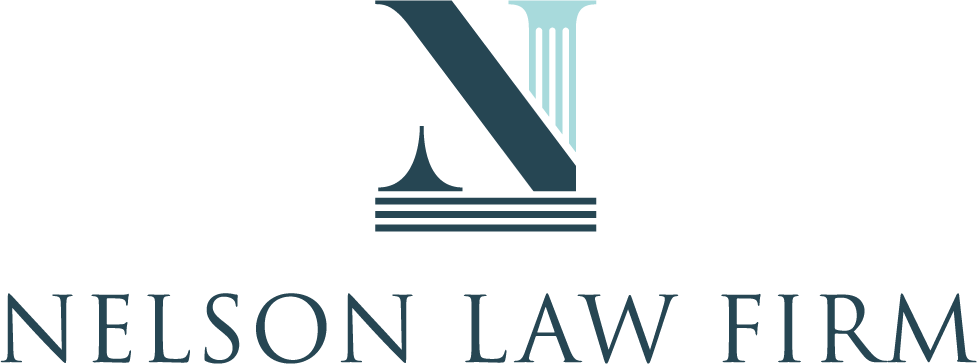
Whether you’re a sole proprietor or a corporation, understanding which records to keep and how long to retain them is essential for safeguarding your bottom line. Organized recordkeeping transforms tax season from a stressful scramble into a smooth, efficient process while helping you avoid penalties for missing or inaccurate information.
Detailed documentation of your income, expenses, and deductions not only keeps you audit-ready but also allows you to claim every eligible allowance. From initial setup to ongoing management, maintaining strong records supports both your day-to-day operations and long-term business growth.
At the Nelson Law Firm, our attorneys are dedicated to helping your business organization stay compliant with tax laws through proper recordkeeping. We strive to deliver exceptional legal services in Beaufort County, South Carolina, and surrounding areas, with care and attention to detail.
Here’s a breakdown of the essential components that make up an effective recordkeeping system for seamless business tax compliance.
Learn More About Recordkeeping Requirements
South Carolina law requires businesses to retain tax records for a minimum of three years from the date a return is filed. Those records include sales receipts, bank statements, and payroll documents. Federal rules may extend that period—often up to six years—depending on your filing status, so you’ll need to track both state and IRS timelines.
Maintaining accurate records isn’t just about compliance. Your files also support deductions for items such as equipment, travel, and home office expenses. By knowing which documents to keep, your business organization can confidently back up every claim on your tax return.
Types Of Records To Maintain
A well-organized record system covers every aspect of your finances, from revenue streams to overhead costs. The most critical categories include:
Income and sales records: Invoices, receipts, and deposit slips showing every dollar your business organization earns.
Expense documentation: Bills, checks, and credit card statements detailing purchases, from supplies to utilities.
Payroll and labor files: Time sheets, W-2s, and contractor agreements reflecting wages, benefits, and payroll taxes.
Asset and depreciation logs: Purchase invoices and depreciation schedules for property, equipment, and vehicles.
Tax filings and correspondence: Copies of returns, schedules, and IRS or state-agency notices related to assessments or audits.
Keeping each of these categories current and easily accessible prevents last-minute searches and reduces the risk of missed deductions. Our attorneys, in collaboration with your accountant, can swiftly verify your compliance status and resolve any questions well ahead of filing deadlines.
Benefits of Accurate Recordkeeping
Accurate records lead to smoother tax preparation, fewer errors, and improved financial knowledge. When your books are up to date, your tax preparer spends less time deciphering transactions and more time identifying savings opportunities. That efficiency often pays for itself in lower preparation fees and reduced audit risk.
Accurate record-keeping goes beyond tax compliance—it empowers smarter decision-making. With real-time data, you can track expense patterns, manage cash flow effectively, and strategize investments. Clear records enhance your ability to budget and forecast with confidence, making it easier to secure funding or plan for growth.
Risks of Poor Recordkeeping
Neglecting proper documentation exposes your business organization to significant penalties. The IRS may disallow deductions without supporting receipts, resulting in higher tax bills and additional interest charges. In South Carolina, state auditors can impose fines and demand back taxes for incomplete or missing records.
Poorly maintained files also hinder your ability to defend against audits. Without clear documentation, you may struggle to explain large expenditures or inconsistent income patterns. That lack of proof can result in unfavorable audit adjustments and prolonged disputes with tax authorities.
Best Practices For Document Retention
Establishing consistent retention rules safeguards your data without cluttering your office. A simple schedule might look like:
Retain income and expense records for at least six years from the filing date to cover any extended IRS review periods.
Keep payroll and labor files for four years after the applicable tax year to address employee-related inquiries or claims that may arise.
Store asset and depreciation logs for a minimum of three years after fully recovering depreciation or disposing of the asset.
Archive tax returns and correspondence permanently for reference and to track your business organization’s compliance history.
Adopting these timelines keeps your records both complete and manageable. Regularly purging outdated files under your firm’s document-retention policy reduces storage costs and improves information security.
Leveraging Technology For Efficient Recordkeeping
Digital solutions transform manual filing into automated processes, saving time and reducing errors. Cloud-based accounting platforms can sync bank transactions, categorize expenses, and generate real-time reports. Electronic document-management systems allow you to upload and tag receipts for quick retrieval:
Automated data capture reduces manual entry by importing transactions directly from financial institutions.
Optical character recognition (OCR) turns paper invoices into searchable PDFs, so you can find any document in seconds.
Secure cloud storage makes sure records are backed up off-site and accessible to your accountant or lawyer when needed.
By integrating technology into your recordkeeping, your business organization gains accuracy and agility. Your team spends less time chasing paperwork and more time on revenue-generating activities.
Conducting Regular Internal Record Audits
Scheduled audits of your financial records help you catch mistakes before they become compliance problems. By reviewing ledgers, invoices, and bank reconciliations on a quarterly or semiannual basis, you can verify that every transaction is accurately recorded and that all supporting documents are in place.
Regular audits also highlight trends or recurring errors that may signal deeper process issues you can address proactively.
Implementing a standardized checklist for each audit creates consistency across periods and business units.
When discrepancies arise, you can correct them immediately, reducing the risk of material misstatements on your tax returns and strengthening your overall control environment. Over time, these audits build confidence in your records, making external reviews far smoother.
Training Staff on Recordkeeping Procedures
Clear, written policies define how employees should create, file, and securely store business records. Regular training sessions reinforce these policies, assuring that everyone understands deadlines, retention schedules, and documentation standards. Ongoing refreshers and real-world examples keep the training relevant and top of mind for your team.
Regular evaluations and spot checks help ensure staff accountability and encourage adherence to procedures. When employees know their work is being reviewed, they’re more likely to follow best practices and seek guidance from management or legal and accounting advisors when faced with uncertainties. Celebrating compliance achievements can further promote and reinforce positive behaviors.
Responding to Tax Authority Audits and Inquiries
When a tax authority requests records, prompt and organized responses demonstrate your commitment to compliance. Gather the requested documents swiftly and provide concise explanations for any unusual transactions or adjustments in your files. Clear communication about your recordkeeping processes can help set the audit’s scope correctly.
Maintaining professional communications with auditors—while coordinating with your lawyer and accountant—helps resolve inquiries efficiently. By addressing questions directly and transparently, you minimize the audit’s scope and reduce potential penalties or adjustments. A calm and cooperative approach often leads to quicker and more favorable outcomes.
Collaboration with Accounting Professionals
Partnering with a qualified accountant or bookkeeper strengthens your recordkeeping system. These professionals can set up chart-of-accounts structures tailored to your industry and review your files for consistency. Regular reconciliation—comparing bank statements to your ledgers—helps spot discrepancies early:
Your accountant makes sure that every transaction is categorized correctly and that every deduction is supported. Meanwhile, your lawyer can advise on legal requirements for record retention and represent you in any disputes with tax authorities. That collaboration creates a powerful compliance team for your business organization.
Contact Our Firm Today
The Nelson Law Firm serves clients in Beaufort County, South Carolina, and surrounding areas. If you need help establishing or auditing your recordkeeping system for tax compliance, our tax law attorneys can guide your business through every step. Contact us today to protect your records—and your bottom line.



